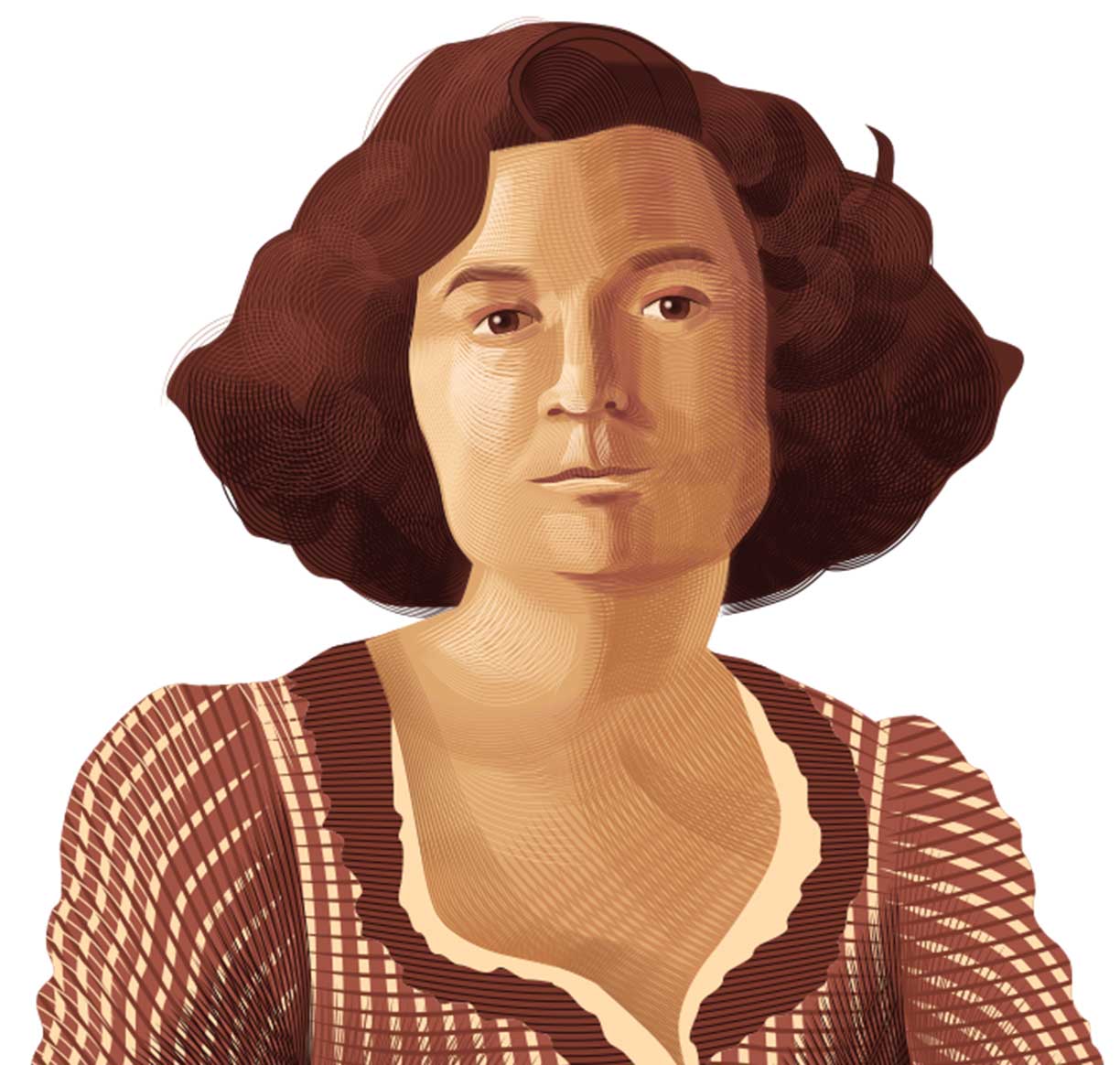“Voyaging through strange seas of thought alone” is how the poet William Wordsworth described the work of Isaac Newton. Perhaps the very idea that genius is eccentric has pushed some intellectuals to seek out eccentric paths. Whatever the case, when we survey the crowd of those whom humanity has reckoned to have genius, we see a great many figures standing politely at a 30-degree angle to the world in which everyone else lives.
One such figure was Rose Rand, once a staple character in Firestone Library. She came to Princeton from Vienna, where, in the 1930s, she belonged to the Vienna Circle, a group of 20-odd philosophers, scientists, and mathematicians who sought to establish a logical bedrock for thought amid a dangerous rising tide of nationalism and irrationalism.
They were an interesting group. Kurt Gödel, a brilliant logician, followed the twists of paradox to the insight that any system of mathematics must be either incomplete or inconsistent. Felix Kaufmann, a master of deductive logic, tracked problems of mathematical infinity as diligently as he tracked problems in criminal law. Olga Hahn-Neurath, despite going blind in college, advanced the Boolean algebra that controls computers today. Discussion topics included: Do scientists know things? Does mathematics reference our world? Can one translate the sentence “This is fun” into the language of logic? Is green an experience?
“If we were to open the window so that passersby could hear us,” one member later said of the group’s Thursday meetings, “we would wind up either in jail or in the loony bin.”
As a Jewish woman, she couldn’t find a paying position in philosophy and had to eke out a subsistence living from translation work. No matter; the world of ideas was very real to her, and to the extent that she could, she lived there.
Rand’s special interest as a philosopher lay in reasoning about social rules and obligations. As a Jewish woman, she couldn’t find a paying position in philosophy and had to eke out a subsistence living from translation work. No matter; the world of ideas was very real to her, and to the extent that she could, she lived there. In addition to being one of its thinkers, Rand was also the Vienna Circle’s official historian, documenting every meeting in spiky cursive.
When the Nazis took over Austria, she fled to Oxford, then Princeton. She did not hold a position at the University, but she held a library card. She wrote and wrote, building towers in the high, cold air of abstract reasoning, sharing her notes from Vienna with other scholars by post to keep alive the conversations of a friend group now scattered.
John V. Fleming *63, an emeritus professor of English at Princeton, later recalled Rand as a campus mystery in the 1960s: “a small, frowning woman of gimlet glance and impenetrable accent who clomped about the philosophy shelves on the third floor in high-top Keds.” Even her name was an enigma: “She was universally referred to among awed library regulars as ‘the Polish Logician.’ One didn’t know whether this meant a logician who was by nationality a Pole, or a practitioner of logic in a Polish mode. (Both things apparently were true.)”
The Polish Logician made brilliant contributions to philosophy, which others have built on while examining how to run a free and democratic society. She didn’t choose a life without a state, a scholarly home, or the strange and wonderful discourse that exalted her youth in Vienna, but she chose to continue that discourse even though it meant lifting a solitary voice in a wilderness of bookshelves far from home. She died in Princeton in 1980.
Without her writings, we would have a weaker purchase on reasoning about what it means to belong to a community; and we would know far less about the Vienna Circle, whose members Rand observed as carefully as they observed the turbulent social world around them.












No responses yet